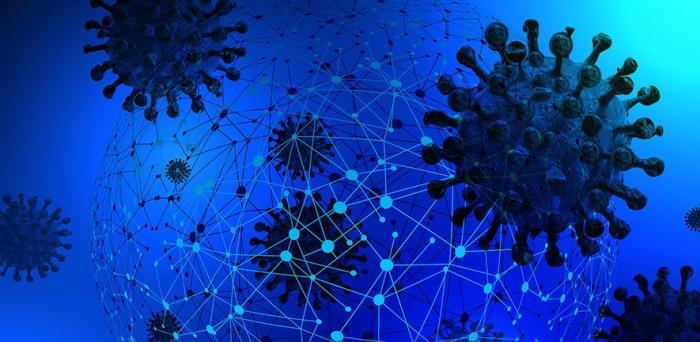In a study published in Science Advances, a team led by researchers at the University of Cambridge’s Milner Therapeutics Institute and Gurdon Institute used a combination of computational biology and machine learning to create a comprehensive map of proteins that are involved in SARS-CoV-2 infection – from proteins that help the virus break into the host cell to those generated as a consequence of infection. By examining this network using artificial intelligence (AI) approaches, they were able to identify key proteins involved in infection as well as biological pathways that might be targeted by drugs.
To date, the majority of small molecule and antibody approaches for treating COVID-19 are drugs that are either currently the subject of clinical trials or have already been through clinical trials and been approved. Much of the focus has been on several key virus or host targets, or on pathways – such as inflammation – where a drug treatment could be used as an intervention.
The team used computer modelling to carry out a ‘virtual screen’ of almost 2,000 approved drugs and identified 200 approved drugs that could be effective against COVID-19. Forty of these drugs have already entered clinical trials, which the researchers argue supports the approach they have taken.
When the researchers tested a subset of those drugs implicated in viral replication, they found that two in particular – an antimalarial drug and a type of medicine used to treat rheumatoid arthritis – were able to inhibit the virus, providing initial validation of their data-driven approach.
Professor Tony Kouzarides, Director of the Milner Therapeutics Institute, who led the study, said: “By looking across the board at the thousands of proteins that play some role in SARS-CoV-2 infection – whether actively or as a consequence of infections – we’ve been able to create a network uncovering the relationship between these proteins.
“We then used the latest machine learning and computer modelling techniques to identify 200 approved drugs that might help us treat COVID-19. Of these, 160 had not been linked to this infection before. This could give us many more weapons in our armoury to fight back against the virus.”
Image: Graphical representation of COVID-19 and networks
Credit: geralt
Reproduced courtesy of the University of Cambridge
